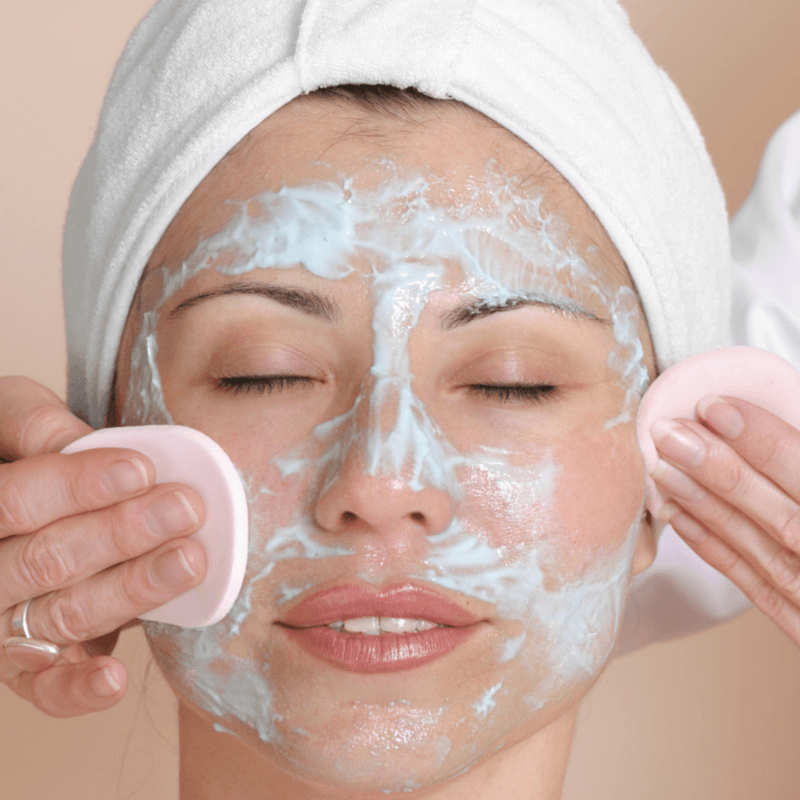Our skin is hugely durable. It has to be able to cope with exposure to sunlight, cold air and water, and it can deal with rubbing against clothing and handling various types of materials. It is little surprise, therefore, that our skin isn’t always perfect. This is always going to be the case to some extent, but there are many things we can do to better care for our skin.

This article contains ten skincare tips provided by the dermatologists at The Medical Chambers Kensington.
#1. Protection from the sun
This may be one of the most obvious tips in caring for your skin. Exposure to the sun can cause much damage and can result in tired looking skin with a leathery appearance. Protecting against sunburn is important, but it is about more than just using sunblock. Even without obvious signs of sunburn, continuous exposure to the sun over the years can still have an impact. Where possible you should stay out of the sun during the hottest part of the day in the summertime. Protecting yourself with clothing will also help, particularly with your face. You should wear sunglasses to protect the skin around your eyes and avoid marks that can develop over time. A hat is always a good idea, as is using specially designed sun stick on lips. This will prevent the temporary discomfort of dry lips and help maintain them long-term. While natural sun can cause skin damage, so can artificial sun. You should therefore also avoid tanning beds.
#2. Protection from the cold
It is not just in the summer months that you need to consider how the weather can impact skin; cold weather can also cause damage. You may have noticed how dry your hands can get during cold spells, but all exposed skin can suffer as cold air will dry out your skin. You should cover your head, face and hands from the elements when it is cold – in other words, wear a hat, a scarf and gloves. It is even more important to cover up when it’s windy, as a constant barrage of cold wind hitting your face will further encourage dry skin.
#3. Cleaning
Cleaning your skin on a regular basis will help remove any dirt or anything else that has made its way onto it. Ideally you should clean it twice a day, when you get up in the morning and before bed. While many of us do the former, many don’t wash their face in the evening. This results in you sleeping in all of the dirt and grime that has made its way onto your face, even though you may not have noticed it.
#4. Use Aloe Vera
Aloe Vera is known to be great for skin. It contains antioxidants that can improve firmness and maintain hydration, therefore helping to fight the ageing of skin. Aloe Vera can act as a moisturizer, can sooth skin irritations and heal after sunburn.
#5. Don’t over wash your hands
While there are many substances that are bad for your hands, washing them too much isn’t good either. Continually putting them in water will dry them out, resulting in an uncomfortable feeling. You should, therefore, protect them when washing up by using washing up gloves.
#6. Consider what you eat and drink
The impact of diet on skin has been much debated. One thing you should be careful with is sugar. Excessive consumption of fizzy drinks, chocolate and cakes can contribute towards unhealthy skin. There have also been some suggestions that dairy products, particularly milk, can cause damage. Eating fruit and vegetables is always a good idea, particularly those high in Vitamin A. Alcohol can be another negative, as it can increase oil production and enlarge pores. A simple rule is that food and drink that is generally good for you is likely to be healthy for skin.
#7. Don’t smoke
As well as being bad for your insides, smoking is also bad for your skin. When you smoke your skin will be exposed to toxins, which over time will affect the skin’s appearance. Also, squinting to avoid getting smoke in your eyes will impact the area around them.
#8. Be careful with cleaning products

Some cleaning chemicals and sprays can result in skin irritation. Which products will irritate someone’s skin will often vary from person to person; it may be a case or trial and error. If you find that certain cleaning products appear to have an impact on your skin try to avoid them. If this is the case with several products search for common ingredients so you can work out what the offender is.
#9. Reduce your stress levels

This is easier said than done, but stress can have an impact on all parts of your health, including the skin. One example of this is that stress can have an impact on hormones, which can cause acne.
#10. Get enough sleep

Most of us know what we should be getting around seven hours sleep a night, but that doesn’t stop many of us getting fewer than that. As well as impacting how we feel and our concentration levels, a lack of sufficient sleep, especially over a prolonged period, can make our skin look tired. Getting less than seven hours sleep a night can increase oil production in the skin, effecting its appearance and feel.

Leave a Reply